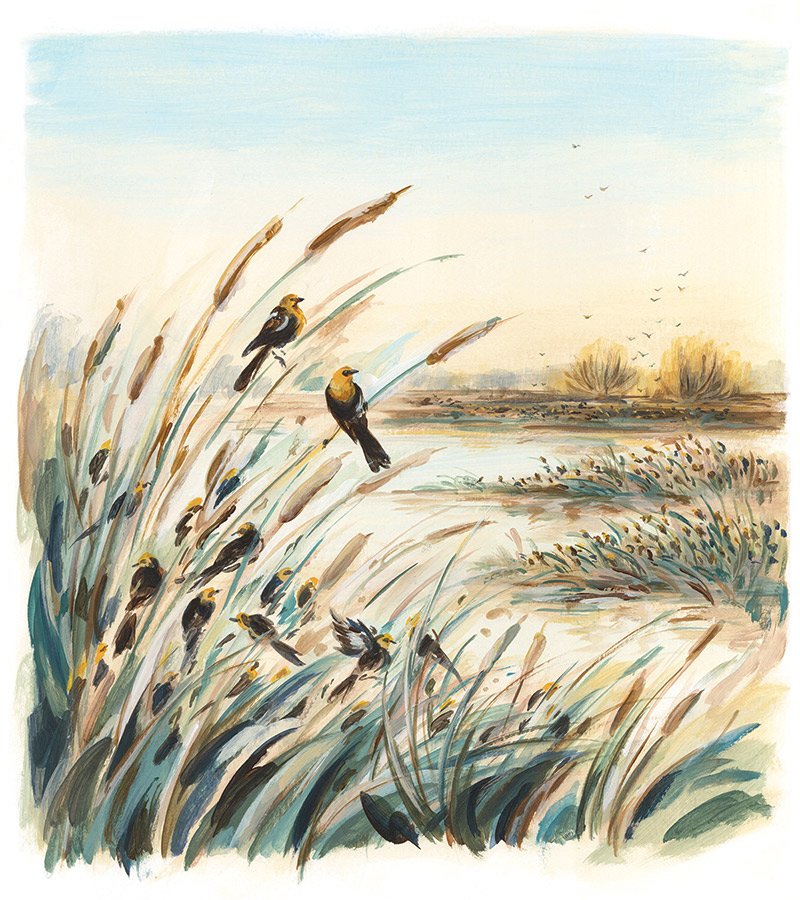
A friend from my undergraduate years at LMU who went on to become a Jesuit priest once said, “God likes to play hide and seek.” We were discussing the unexpected ways we encounter sparks of the divine in everyday life — sometimes in the places you’d least expect it.
I often think of my friend’s words in the process of writing poetry. So much in our lives no longer seems miraculous. We tend to live in an anodyne, and cynical, world where few moments give us a sense of rapture. The noise from social media, television, and even the dailiness of our lives can lull us into a stupor of scrolling — passively consuming the world around us.
Yet, I’ve found that applying the principles of Jesuit spirituality that I first learned more than 25 years ago at LMU keeps me wide awake to God’s presence all around me. I learned to use the Daily Examen to be ever alert and mindful to the moments when I might see God peering out from the ordinary — and to reflect on those experiences. Learning principles of Ignatian spirituality taught me to bring within myself what I witness and to meditate upon what I’ve experienced — to seek deep meaning beyond the literal. In the Spiritual Exercises, Ignatius of Loyola wrote, “For it is not knowing much, but realizing and relishing things interiorly, that contents and satisfies the soul.” Ignatius reminds us to be humble, and ready to respond to the world with new eyes.
“I often pray for guidance when starting a poem.”
—Jasmine Marshall Armstrong ’00
This same process reflects my work as a poet. I often use the Examen to remind myself to be fully present to what I’m experiencing, and to let those moments ferment
and mature.
California’s Central Valley, where I live, isn’t often considered a beautiful place, or one worthy of visiting. Yet there are surprising opportunities to grasp what Jesuit poet and priest Gerard Manley Hopkins meant when he wrote, “The world is charged with the grandeur of God.”
Off an ordinary country road with the unpromising name Sandy Mush sits the Merced National Wildlife Refuge. It’s a place I often visit, with different seasons bringing different species of birds, from majestic sandhill cranes in the winter to a variety of songbirds in the spring. On a recent visit with my husband, we rounded the curve of a marsh, greeted by the sight of hundreds of yellow-headed blackbirds. I had only seen a small flock once before. This time, the sight was amazing. Clutching the reeds were blackbirds, each with a head that reminded me of the sunflowers that grow beside the roads and ditches here in the Central Valley. Their bright yellow coloring, verging into orange beside their eyes, presented an unexpected pop of color.
I took this breathtaking sight home in my memory and let it percolate. I asked what did this encounter reveal about God’s presence in the world? I remembered passing a giant Amazon truck filled with goods on the drive out to the refuge. It’s a common sight that has become ubiquitous. As with the Examen, I let myself ruminate. I thought of my friend’s words about God. What was God trying to say in the contrast between the mundane and commercial, and the unexpected beauty of the natural?
I often pray for guidance when starting a poem. I felt drawn to the idea that the yellow-headed blackbirds unlocked something that had been fallow in my spirit, and it is not something that can be found on Amazon.com. It is the fleeting experience of unexpected grace — a gift reminding me that the miraculous illuminating God’s presence is all around me — if I am open to heeding his call. The experience led to a poem that has been accepted for publication in the literary journal “The Dewdrop.” It also reminded me to be ever present to the grandeur of the creator we can find in unexpected places.
Jasmine Marshall Armstrong ’00 is a writer and teacher. She lives in California’s Central Valley. Her poetry has appeared in America Magazine, Sojourners, Poets Reading the News, The Dewdrop, Typishly, and literary anthologies.
